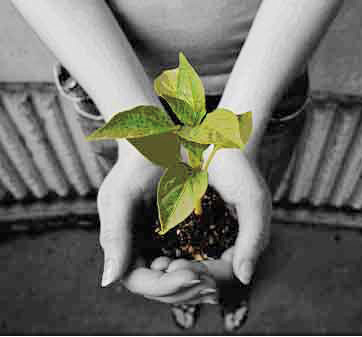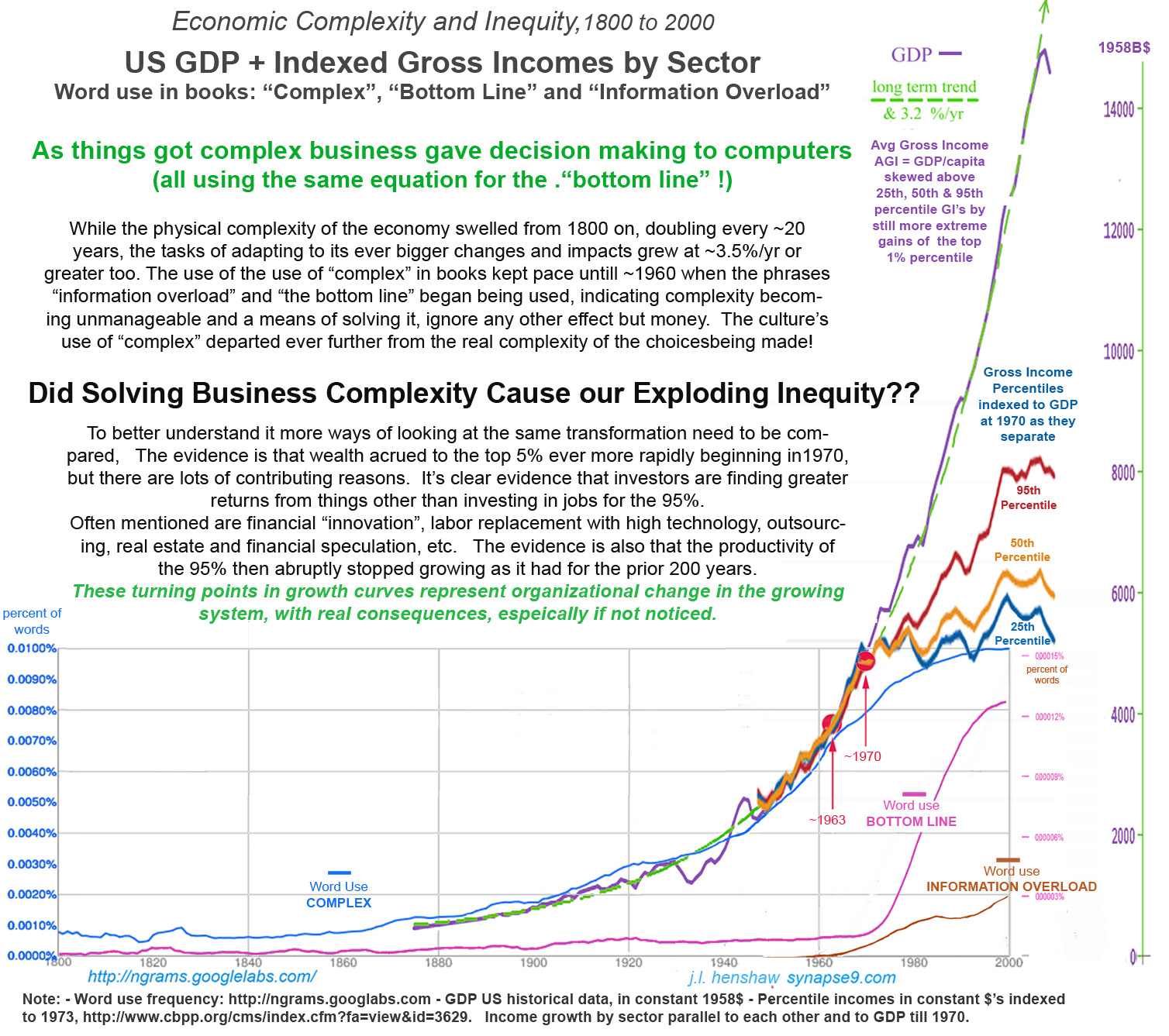A crowd sourcing proposal. Suggested to WNYC as a new form of news coverage
_______
From a natural history view, how the US news media reports on what’s happening of public importance is, well, entertainment news, that misses most of what’s actually happening and how it’s connected. Even Public Radio mostly giving us six shows a day of talk about all the same things that “everyone” is talking about. It tracks how the discussion is changing, but misses almost entirely how the world itself keeps complexly and dramatically changing by itself.

The “news” displays very little if any perspective of events contributing to accumulative change over time.
So “nature’s understanding” of change, and the scope of change in the real context of our world, is largely missing. There are, however, people of all sorts thinking about their life’s work and from an overview of their own disciplines who think of the whole scope of change in which they’re immersed all the time. We just never hear from them.
So… there’s a huge variety of great stories of important kinds about what’s happening to us and around us, with almost no one telling the stories and reporting on it. How about crowd sourcing a different concept of news gathering entirely?
To understand how one’s world is changing what’s most important is pointing out how **nature** is connecting the dots. What the “pundits” describing cause and effect generally give us is their own rationalization, their personal revisionist history, i.e. a social commentary. They don’t give you the complex stories of how nature is bursting with new relationships and connecting them.
It’s not the “news events” but the “accumulation of new relationships” that are so dramatically changing the earth, our relationship with it, and the forms of relations between human societies and cultures. It’s only a natural science view of history, as the general evolution of natural change that can reveal that. It can only be told by people just describing the dramatic flows of accumulative events, as traceable threads of continuity, in the rich context of the field they have extensively studied.
Technology is totally remaking the human experience of the earth, for which no culture or knowledge discipline seems at all prepared. It takes an evolutionary view, of the whole sweep of change, to appreciate what explosive bursts of change come from, are feeding on, and how they’ll eventually need to resolve. Presented as “data” those great stories are made totally uninteresting and lifeless, lacking the sense of how nature is connecting the dots. Presented as “theory” usually gives you selected facts fit into a picture of the story teller’s invention, given some social network’s favorite “spin” (or wholesale misrepresentation, bias and private theory. To tell nature’s story of events is the trick.
Nature’s way of connecting the dots is accumulative change, where every moment in time is the foundation for the next, with sequences of change that, quite generally, have to swell and subside (¸¸¸.·´ ¯ `·.¸¸¸). Nature has a splendid standard way of organizing change in stories, taking it from where they begin with an explosion of new relationships to where they end in some quiet confirmation.
It’s following that general scientific narrative of change, tracing how nature connects the dots, that makes stories of change as fascinating as the reality, both scientific and intimately connected to the context we each know from our own experience. It’s just too complicated to reduce to a theory. You just describe everything connected and the whole thread of connecting accumulative changes from beginning to end, nature as evolving stories. It offers a better model for telling the story of our time and place, and what’s happening all around us.
Natural change regularly tells quite dramatic stories, taking place through explosions of emerging relationships, that tell suspense filled tales about reorganizing how their part of the world works. The stories of our personal lives are often told that way, as suspense filled tales of bewilderment, discovery and achievement. Telling nature’s stories that way would make the world of natural change personal.
What makes those real life stories interesting is telling the whole story as accumulating connections and events in an environment that is receptive to them. In part that makes the pace of the story one that people can recognize the excitement and suspense in. The actual explosions of natural change tend to be “too slow” or “too fast” to get anyone’s attention in real time, and that’s another part of why the news and pundits tend not to notice them. Told at the right pace, from beginning to end, in context, evolutionary change is not the least big boring.
It’s actually a law of nature, implied by the physics principle of energy conservation, that changes physical systems must begin with an explosion of new forms of organization. That’s seen in the germination of a seed, also in how every human life begins, with a burst of new relationships and energy use. It also applies to any new technology, or any new business venture, or new form of culture too.
If you called the show “The whole story”, and advertised it the right way, you might find people to tell “The whole story of the great 21st century slums, and what they mean for us.” You might find someone to tell the whole story of “The food crisis, where it came from and is taking us”. Both of those are repercussions of the failure of “Colonialism”, and understanding that connection is really important for understanding what is happening to our other failing ventures in “colonizing” the whole planet economically.
There are a million other really fascinating and important things going on all around us too. You might find someone to tell “The whole story of Rome” the world empire that preceded our own free enterprise world empire, also becoming troubled as it hits its limits to growth as Rome did as well.
For telling the whole story of natural change it’s not really “data” that you study. It’s the threads of accumulating change in relationships, and the emerging new forms of organization that develop. If all you do is make sure the people telling historical stories tell “the whole story, in context, from the very beginning to the very end” you’d largely assure it would be told in a way that’s 1) fascinating, as real time current natural history and 2) also largely scientific, filtering out most of the boring and slanted ways of telling some isolate part of these wonderful tales taken out of context.
I think you might find a thousand people who could talk as brilliantly as Oliver Sacks, given the subject is the stories for which they have an overview from their own field. You might get people to discuss the whole story of how scientific revolutions or new scientific disciplines were formed. They all emerged with bursts of cultural self-organization, beginning as Margaret Mead described “A small group of thoughtful people could change the world. Indeed, it’s the only thing that ever has.“.
You might get people to tell the whole story of the typical great financial boom and how it turns into a panic. Just let it be known you’re looking for people with detailed knowledge of great change, to give a talk on air, telling the whole story of where great change came from, how it happened and where it will need to resolve. If you just make clear the purpose to discuss the whole story, with a history and future, as an event of our animated world from beginning to end, that’ll largely assure any subject is approached in a scientific and fascinating storytelling way.
I’d offer to be on a panel to help you get started. You might also look at the dramatic puzzle of what is physically happening to us and our world economy that way, and just maybe see, “Hey, there’s a *story* there.”
_________
http://www.synapse9.com/issues/GDPcomplexHist.jpg

